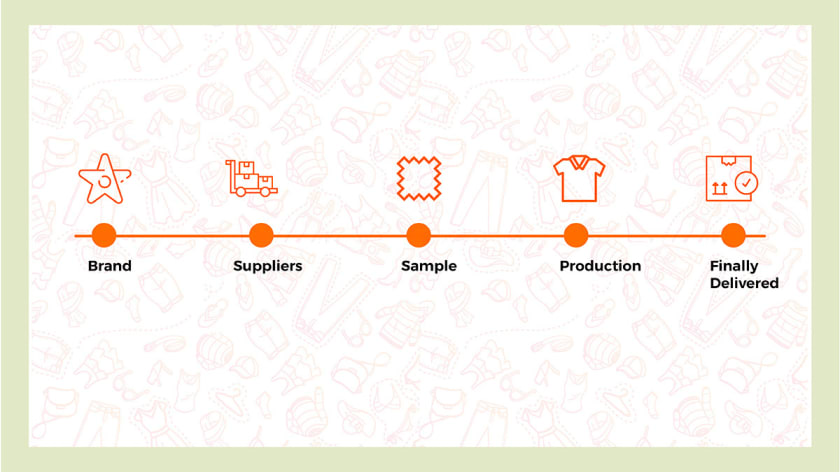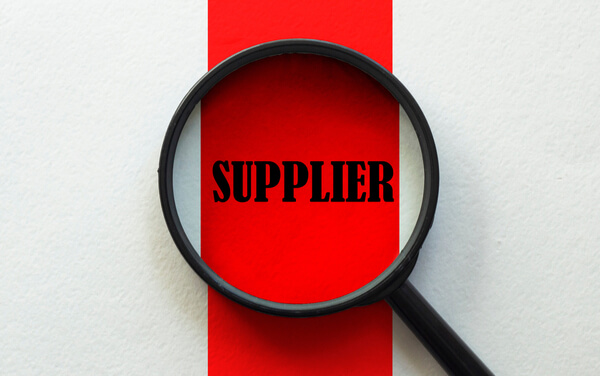Supply Chain Challenges In Apparel Industry and How You Can Fix Them



The global apparel industry reached a value of $758.4 billion in 2018 at a CAGR of 7.5% since 2014, and the industry’s worth is predicted to exceed 1.5 trillion in 2020. Data suggests that the global fashion industry delivers nearly 80 to 150 billion apparels in a year, with the US being the largest market for garments and countries such as China, Bangladesh, and India being some of the leading suppliers.
Fast fashion has fuelled the growth of the clothing industry by generating a continuous demand for clothes. Buyers no longer wait for seasonal purchases but invest their disposable incomes on clothing all around the year. Fashion trends shift weekly, which results in a consequent shift in demand.
The 21st century apparel industry is thus characterized by agility, which is supported by technological advancements and favourable political regulations. E-commerce has played an especially notable role in the growth of the market. However, the fashion industry supply chain confronts some serious challenges in the face of this ever-increasing demand, and these challenges must be identified and resolved by the companies in order to thrive and prosper.
Securing reliable suppliers
One of the greatest challenges in fashion retail is to secure reliable suppliers. When a clothing company builds a new alliance with a supplier, they should look for long-term association because this will enable them to work together on improving the customization and quality, while they plan for shifts in demands in advance and reduce costs by minimizing waste.

However, it might be difficult to find suppliers who meet all the requirements and it is best to compare a number of them before committing to one. European and American companies mostly outsource their products, and this further complicates issues by including geographical and linguistic barriers into the mix. It is certainly difficult to communicate the exact needs of a brand to a supplier who speaks a different language and a lot might get lost in translation.
The situation becomes more complicated if the brand is looking for sustainable suppliers. Without an on-ground presence, it is difficult to evaluate the practices followed by the suppliers and to verify them.
Solution:
To shortlist credible suppliers, one needs to conduct market research and identify the suppliers that the leading brands in the industry are opting for. Suppliers who hold the best records for on-time delivery of sustainable products can then be approached. Fashinza resolves this problem by finding top rated suppliers for the companies and by establishing a network of communication between the suppliers and the organizations.
Short lead times and on-time delivery
With product life cycles becoming shorter and trends in fast fashion changing rapidly, supply chain optimization has become a great challenge. For a company to have a competitive edge in the market, it is essential to have new products manufactured and delivered within the shortest possible time span. There should also be no unplanned delay to disrupt operations.

Solution:
Fashinza confronts these challenges by optimizing the supply chain and logistics. We work with selective shipping companies that have the fastest delivery speed and opt for suppliers who have the resources and infrastructure to deliver bulk order rapidly. Besides, Fashinza allows companies to track the progress of their orders on a tech dashboard with real-time updates and in doing so, we not only secure on-time delivery but our associate companies can remain aware of the latest developments at every hour.
Low MOQ and short pre-production turnaround time
Brands might want to test the waters by ordering products in low quantities to begin with, eventually going ahead only with the products which seem to be generating demand. To facilitate this strategic move, it is important that the companies are able to order in low quantities. It can be quite a task to find suppliers who have low MOQ. Long pre-production turnaround time is another problem which troubles brands.
Solution:
There are manufacturers who understand the strategic significance of low MOQ, and they are operative across Bangladesh, India, Sri Lanka, and numerous other countries. Fashinza helps brands to form alliances with such suppliers who accept the lowest MOQ in the industry and have fast pre-production turnaround time.
Lack of fashion expertise
Teaming up with manufacturers who do not have adequate fashion expertise leads to unpleasant experiences for brands every now and then, resulting in the wastage of time, money, resources, and fabric. It is crucial to find manufacturers who have experience in niche clothing and who can live upto the expectations of the brand.

Solution:
The only solution to this problem is to select the manufacturer who would be a perfect fit for your brand. The task sounds quite daunting but becomes a cakewalk with Fashinza’s help. We can browse through hundreds of manufacturers to find the ones that have adequate experience to fulfill the brands’ individual necessities.
Damaged or missing shipment
Apparel companies need to deal with damaged and missing shipments on a regular basis, which causes considerable financial loss and operational difficulties. Ensuring that the products can reach the retailer safely is essential, but when a company is importing from other countries, they must plan ahead to account for such losses which are likely to occur along the way.
Solution:
Fashinza implements real-time monitoring of products during transportation which eliminates the risk of damage or loss of shipments.
Lack of transparency
Absence of transparency in the supply chain is a vital supply chain risk that numerous companies struggle with. It can be incredibly difficult for companies to track the development of their products and communicate with suppliers along the production procedure, especially when they outsource the production. Suppliers often delay delivery and logistic problems occur while the companies remain uninformed. This lack of visibility impacts the operations at large and the issue demands to be acknowledged.

Solution:
At Fashinza, we have an established infrastructure to deliver the companies with AI generated updates at every stage of production. We can hasten up the supply process because our representatives are always present on the ground to keep a tab on the manufacturers. This enables us to readily intervene with any logistic issue that might occur along the way. Apparel companies are not only saved the trouble of pursuing matters related to supply but are also kept informed of all ongoing activities. We secure transparency, reduce stress, and encourage clothing brands to manage less and create more!
Labour issues
Unforeseen labour issues often interfere with the manufacturing process. When laborers are unhappy with their employers, their productivity reduces and there might be major problems such as labor strikes in case of a conflict between the laborers and manufacturers. Incidences such as these can entirely disrupt operations for a company. Similarly, a company might not know in advance about the cultural practices of the countries they are outsourcing to and consequently, they might land in the middle of a holiday season. Research and pre-planning is necessary to overcome these challenges.
Solution:
Fashinza informs allied companies about the estimated production and delivery schedule before placing orders with a supplier to ensure that they do not get caught in the midst of a holiday season. More importantly, we pair up with suppliers who support their labours through fair wages and a healthy working environment. The workers are satisfied with the manufacturers, which reduces the chances of unforeseen troubles like a labour strike.
Poor communication with suppliers
Companies often complain about poor communication with the suppliers, which acts as a hurdle in the production process. Suppliers do not frequently follow up with updates or do not respond to the queries of the companies after the initial communication, and this can lead to unnecessary agitation.

Solution:
Fashinza permanently eradicates all issues related to communication. Companies we work with have round-the-clock access to an AI regulated dashboard that provides updates in real time, and in case they need to communicate with the suppliers, we facilitate the same without delay. On-ground presence of our representatives ensures that we have uninterrupted communication with the suppliers.
Multiple middlemen involved in the supply chain
When European and American companies outsource their products, they have no choice but to rely on multiple middlemen who control the entire supply process. Lack of coordination is a common problem which arises out of an arrangement such as this, and it results in delays and unpleasant experiences for the companies ever so often. What’s worse is that when things go wrong, the middlemen keep delegating the liabilities onto each other, making it difficult for the brands to hold anyone accountable or to seek reparation.
Solution:
When companies decide to work with Fashinza, they no longer need to deal with multiple middlemen or with the confusion that is a part of the common supply process. Fashinza takes care of everything from design to delivery, serving as the one stop solution for supply chain management. We consider it our liability to secure a smooth supply chain experience for our clients and we facilitate constant communication along the way.
No single source of truth
Working with multiple middlemen leads to a second problem where there is no single source of truth: the information provided by one source might be contradicted by another, causing an anxious situation for the company that is already separated from the supplier by an enormous geographical distance.
Solution:
By providing a single platform that connects the companies with the suppliers, Fashinza acts as a single source of truth. We directly communicate the requirements of our associate companies with our manufacturers, and provide every form of support to both the parties along the way. We promote a transparent supply chain where all parties remain updated about the latest developments at every stage of production.



















